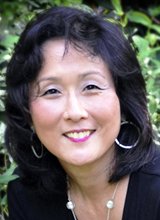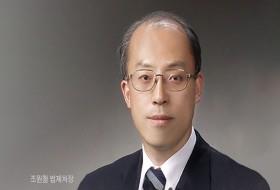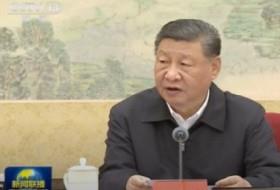
- ▲ 凯瑟琳·文 美国布鲁金斯学会/SK·韩国国际交流财团客座
2009年,韩国一跃成为俄罗斯在亚洲的第三大经济伙伴。2010年,韩国超越了日本和美国,成为俄罗斯人最喜爱的旅游目的地。而另一方面,由于克里米亚半岛合并问题,以及俄罗斯在乌克兰显露出的军事冒险主义等,俄罗斯正在受到国际社会的制裁,美国也希望韩国加入自己的“统一战线”。
但从国家利益出发,韩国应自主保持并强化韩俄关系。俄罗斯是六方会谈当事国,还会参与无核化谈判。此次俄罗斯邀请世界各国首脑参加反法西斯战争胜利庆典,即便在这次活动上韩朝关系无法取得太大进展,但也可以把这当做一种未来投资。俄罗斯此次把战胜纳粹德国70周年的活动,作为宣扬弗拉基米尔·普京总统的伟大和英勇的契机。
在俄罗斯,第二次世界大战是“伟大的爱国战争”,他们依然把这段艰难的岁月和创伤铭记在心中。当时纳粹严重威胁着人类的尊严,凡是威胁到其政权的人,都会被严刑拷打或杀害。现在生活在三八线以北的朝鲜人民生活在暴君的统治下,而人类的平等和尊严是全人类的普遍价值,就算为了唤醒包括他们在内的全世界人民认识到这一价值的重要性,朴槿惠总统也应该访问俄罗斯的。
韩国还应该对发展和俄罗斯的关系深思熟虑。事实上,韩国很难积极地参与针对俄罗斯的军事、领土膨胀主义的制裁和紧张关系。越是这种时候,韩国总统越是有必要出现并留下深刻的印象。尽管很难因为现在的地缘政治关系在物资和资本上得到预先保障,但只要朴总统现身俄罗斯,就足以成为对未来的投资。
没必要过分忧虑美国对朴总统访俄的看法。韩美同盟很牢固,在此基础上,两国各自追求自己的利益即可。朴总统可以去莫斯科与其他世界领导人交流,将此作为加强与中国以及其他东西欧国家关系的机会。没有人知道美俄关系在未来的几个月里会如何发展,不能为了讨美国人欢心就把韩国自己束缚起来。
如果金正恩也赴俄,由于身处第三国,会比较容易见面。而作为金正恩,在被众多人环绕的外国行动也更方便。如果朴总统不去,金正恩也许会成为集世界媒体关注于一身的独特的存在,他也许会主张自己是韩半岛的代表,这对韩国并非好事。尤其,韩国还需要考虑到韩朝与俄罗斯正在计划的联合军演以及发展经济关系的情况。
总而言之,无论平壤方面是否有所动作,朴总统都应该决定对待俄罗斯的态度。金正恩说好会参加5月的庆典,但他也随时有可能变卦。但如果朴总统赴俄,就应该发出从更广阔的视角探索政治、经济、外交关系发展的明确信号。因为只有这样,左右翼的批评家们才不会只盯着韩朝关系不放。韩国应放眼长远,抓住这个可以参与“大政治”的国际舞台的机会。
A Moscow Visit for President Park Geun-hye
Katharine H.S.Moon
SK-Korea Foundation Chair in Korea Studies
Brookings Institution, Washington DC
President Park Geun-hye should go to Russia in May with several goals in mind, not the unitary goal of meeting the North Korean leader Kim Jung Un or improving inter-Korean relations in a significant way. As a wartime ally of the United States, the Soviets had agreed to fight in the Pacific theatre against Japan, the former colonizer of the Korean peninsula. True, Stalin’s regime was partly responsible for the division of the peninsula assisting Kim Ilsung in the Korean War. But since the ROK-Russian normalization of relations in 1990 the relationship evolved from residual distrust and attempts by the Seoul to drive a wedge between Moscow and Pyongyang to one of economic and diplomatic cooperation.
By 2009, South Korea became Russia’s third largest economic partner in Asia, and in 2010, South Korea outranked Japan and the United States as a favored tourist destination of Russians. Despite international sanctions against Russia for its annexation of Crimea and military adventurism in Ukraine and Washington’s desire for a “united front” against Moscow, the ROK-Russia relations should be maintained and strengthened for Seoul’s own national interest. After all, Russia is a member of the six-party talks and will be involved in any negotiations over North Korea’s nuclear program. And even if there may not be real gain in inter-Korean relations by attending the international gathering, there may be costs that Seoul would not want to incur.
Moscow will certainly use the occasion of the 70th anniversary of the defeat of Nazi Germany to showcase the country and its leader, Vladmir Putin, as great and heroic. The American magazine The New Republic reported on the meaning of the annual celebration for average Russians and for President Putin, who rehabilitated Victory Day as a great nationalist holiday: “Putin Is Using WWII for Propaganda Because It's the Best Memory That Russia Has” (April 2014). It's possible that Russia’s alliance with Western powers such as the United States and the United Kingdom may get overshadowed by the glorification of Soviet prowess and sacrifice, but all military celebrations over-dramatize the glory and underplay or cover up assistance by others, a country’s own mistakes, and the inevitable chaos of war. In truth, there is no doubt that the Soviet Union played an indispensable role in defeating the Nazis and releasing many parts of Europe from their stranglehold. Soviets sacrificed between 25-30 million lives. Russia, with the largest population among the Soviet republics, lost 13,950,00 people, military and civilian, followed by Ukraine ( the second largest population at the time), with 6,850,000 dead. (Ironically, both shed the most blood back then for a common cause although now they have turned their weapons against each other.) Russians call World War II the Great Patriotic War, and just about every Russian family experienced the hardships and losses in numerous ways.
In the 1930s and 40s, the greatest threat to peace and human dignity was posed by Nazi Germany. It systematically tortured and murdered anyone it deemed “undesirable” or a threat to the regime. In that sense, President Park can travel to Moscow with the principle of human equality and dignity as universal guiding principles to remind us that millions around the world, including people north of the 38th parallel, live under political tyranny.
South Korea also needs to maintain and improve its relations with Russia prudently. Even though current tensions and sanctions over Russia’s military and territorial expansionism make it an awkward time to eagerly cooperate with Russia, a South Korean presidential presence will be noticed and noted by Russian diplomats and business elites. Attendance is a way to bank on the future even if direct deposit of goods and funds cannot easily be invested at the moment for geopolitical reasons. In this context, the ROK government worries too much about how the United States will regard a visit to Moscow by Park. The U.S.-ROK alliance is strong, and in addition to common bilateral interests, each country has its own interests to pursue. For South Korea, President Park’s presence in Moscow will provide an important venue to exchange views with other world leaders, strengthen its friendship with China and both eastern and western Europe in particular. There is no way to know how the U.S.-Russia relationship will develop in the coming months, and Seoul should not hold itself in suspension for an outcome that makes Washington happy.
Regarding North Korea and inter-Korean relations, if Kim Jong Un shows up in Moscow, it’s a convenient third country venue where a meeting between the leaders of the North and South can be arranged. Kim Jung Un is more likely to conduct himself better in a foreign place with many people around, where he cannot control everything, than in his home turf, where he controls so much. And even if he were to be well-received by Russians, he certainly will get the cold shoulder from other leaders in attendance. If President Park does not go to Moscow, Kim Jong Un might become one of the featured guests (simply out of novelty), at least in terms of media attention. He may make grand claims to represent the Korean people and use the opportunity to make new friends. This would not benefit Seoul, especially at a time when Pyongyang and Moscow are increasing economic ties and planning joint military exercises.
Bottom line, President Park will have to decide about Moscow regardless of what Pyongyang does or does not do. Even though Kim has agreed to attend the Moscow event in May, there is a good chance he might change his mind. And if President Park does go, the Blue House should send clear signals that there are broader political, economic, and diplomatic relations for her trip so that the Korean critics in the right and left do not fixate only on inter-Korean relations. Seoul should take opportunities on the global stage to engage in “big politics” with long-term vision.



.jpg)
.jpg)

.jpg)



.jpg)
.jpg)
.jpg)
.jpg)
